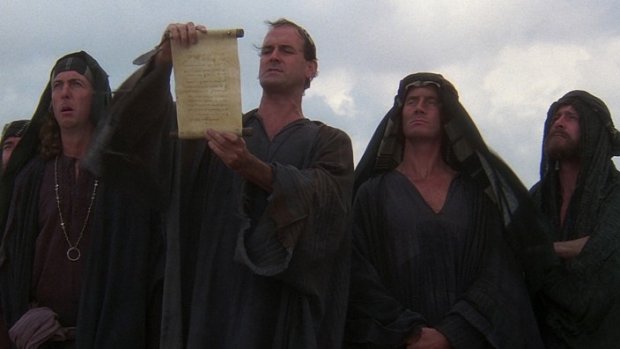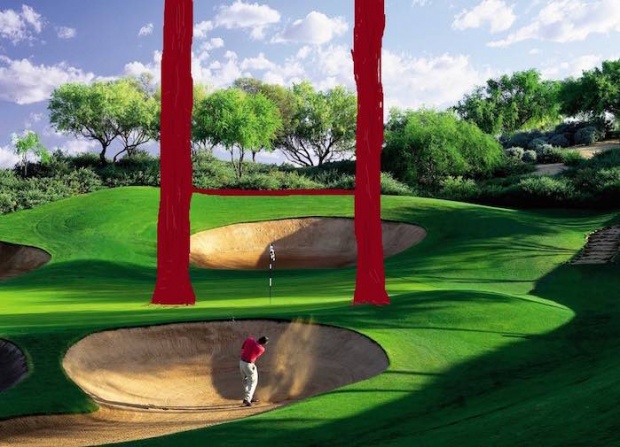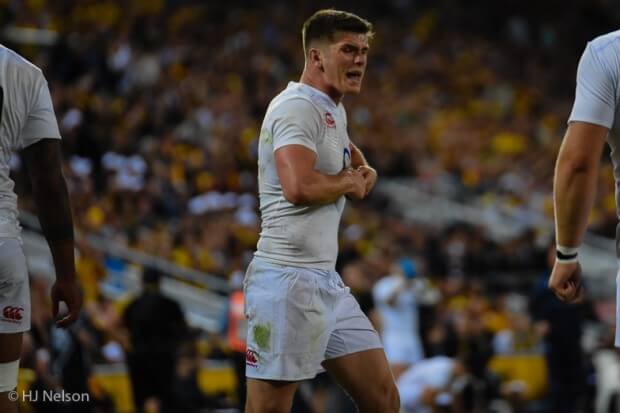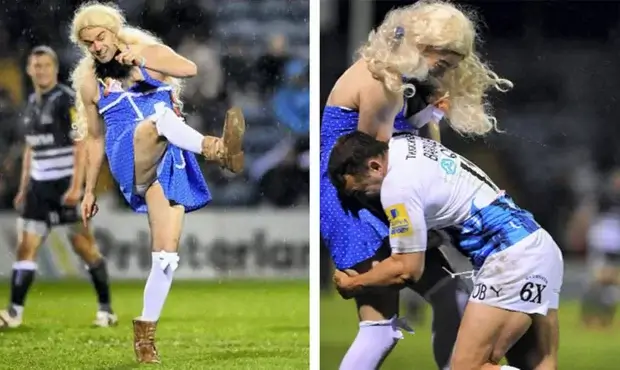A happy and glorious Wednesday to you, G&GRs! There’s been a fair bit happening in the past 24 hours, so let’s get down to business.

A SEA OF SCINTILLATING SQUADS
A number of big squad announcements for France 2023 have come out in the last day or two, including Australia’s own Pool C rivals:
Forwards: Nicky Smith, Gareth Thomas, Corey Domachowski, Tomas Francis, Dillon Lewis, Henry Thomas, Dewi Lake, Elliot Dee, Ryan Elias, Adam Beard, Dafydd Jenkins, Will Rowlands, Christ Tshiunza, Taine Basham, Dan Lydiate, Tommy Reffell, Jac Morgan, Taulupe Faletau, Aaron Wainwright.
Backs: Gareth Davies, Tomos Williams, Gareth Anscombe, Dan Biggar, Sam Costelow, Johnny Williams, Nick Tompkins, Mason Grady, George North, Josh Adams, Rio Dyer, Louis Rees-Zammit, Leigh Halfpenny, Liam Williams.
Warren Gatland has done something of an Eddie Jones: restricting depth in key positions (halfback, for example) and favouring the next generation, though this has largely been forced upon him by a mass of big-name retirements earlier in the year. Examples include co-captains Dewi Lake and Jac Morgan boasting only 20 caps between them.
Forwards: Cyril Baille, Jean-Baptiste Gros, Reda Wardi, Uini Atonio, Dorian Aldegheri, Sipili Falatea, Julien Marchand, Peato Mauvaka, Pierre Bourgarit, Thibaud Flament, Paul Willemse, Romain Taofifenua, Cameron Woki, Gregory Alldritt, Paul Boudehent, Francois Cros, Sekou Macalou, Charles Ollivon, Anthony Jelonch.
Backs: Antoine Dupont (captain), Maxime Lucu, Baptiste Couilloud, Matthieu Jalibert, Antoine Hastoy, Damian Penaud, Gabin Villiere, Louis Bielle-Biarrey, Gael Fickou, Jonathan Danty, Arthur Vincent, Yoram Moefana, Thomas Ramos, Melvyn Jaminet.
France is fearsome, no doubt about it, with the core of the side that has swept almost all before it in recent years featuring strongly in this squad. A sexy announcement video was also in the offing (I mean, what’s sexier than an entrée of Lizzo and French café dining followed by a cadre of front-rowers?). The key omission is of course the formidable Romain Ntamack, ruled out with injury.
Forwards: Siegfried Fisi’ihoi, Feao Fotuaika, Tau Koloamatangi, Paula Ngauamo, Siua Maile, Samiuela Moli, Ben Tameifuna, Paula Latu, Sosefo ‘Apikotoa, Adam Coleman, Samiuela Lousi, Sitiveni Mafi, Vaea Fifita, Tanginoa Halaifonua, Semisi Paea, Solomone Funaki, Sione Vailanu, Sione Havili Talitui
Backs: Sonatane Takulua, Augustine Pulu, Manu Paea, William Havili, Otumaka Mausia, Pia Ahki, Malakai Fekitoa, George Moala, Afusipa Taumoepeau, Fine Inisi, Solomone Kata, Salesi Piutau, Kyren Taumoefolau, Anzelo Tuitavuki.
Arguably the biggest squad news of the day is the omission of Israel Folau, the former Wallaby fullback succumbing to injury and not being risked on the plane to France. Meanwhile another green and gold turncoat, Adam Coleman, looks set to formalise his change of allegiance in the second row.

BUNKER BINGO
Meanwhile, World Rugby have confirmed that another series of law and guideline tweaks trialled in the Southern Hemisphere will feature at the upcoming World Cup.
A visible shot clock will be displayed and enforced throughout matches, providing players with a maximum 90 seconds to take a conversion and 60 seconds to take a penalty kick. The announcement does not specifically indicate the scrum set timer will also carry over, but for the sake of consistency and the old fatigue chestnut, I hope so.
The ‘bunker’ system will also feature, with referees able to quickly issue yellow cards to dispense swift justice on obvious foul play, particularly play endangering the head, while referring to the offsite, independent, Rassie nuclear rant proof bunker for consideration of higher honours. Players in the naughty chair found by the underground whistleblowers to have met the red card threshold will be subsequently issued said vino, and play no further part in the match.
All in all, these were sensible amendments when they were first introduced and have been proven so throughout Super Rugby, the Rugby Championship, and the World Cup warm-ups. The latter in particular gives referees the clarity and space they need to make good yet swift decisions, with no doubt the support of all stakeholders.
That is, until the judiciary hangs them out to dry and completely overturns the sport’s progress on foul play and head injury in one fell swoop. Which brings me to…

HUMP DAY HYPOTHESIS
World Rugby’s appeal against Owen Farrell’s recent judiciary finding was scheduled to be heard overnight. In fact, with a new independent panel appointed from around the globe, the hearing was to commence at 7:30am UK time – which means at time of publishing over 12 hours has elapsed with no news on a finding whatsoever.
The cynical among you might suspect the news is therefore bad (for World Rugby): Farrell’s acquittal is upheld, he is free to play immediately, and all players (of Tier 1 nations, mind) are now at liberty to launch themselves face-side with reckless abandon.
Those still clinging to the purity of our game might instead be sure that the hearing is meticulously, nay forensically, nay follicularly sifting through every piece of available evidence to ensure the truth is uncovered and justice prevails. The fact that every set of eyeballs connected to a visual cortex in the world (excepting the three original judiciary members, apparently) can determine this to be a red card offence within about 30 seconds is neither here nor there.
If it turns out the latter is true, and Farrell is ultimately sanctioned (properly) for the *tackle* on Taine Basham, I’m inclined to think this entire saga may turn out to be a blessing in disguise for World Rugby. As we have seen over the past few years, as clear as the new dangerous tackle framework can be there is always a mile of subjectivity around many of these decisions, particularly the perceived difference between a yellow and red card. And while I feel that the impact of cards on the quality of matches has declined a little, as teams have adapted to the risk of playing a player (or even two) short, there’s always a distinct possibility that a major moment of the upcoming World Cup is decided by a card that is heavily contestable by fans and administrators alike.
Now I’m no lawyer, but it seems to me that testing the guidelines through a sustained judicial defence (as Farrell’s team have clearly brought) should in theory strengthen them; that is, if decisions are largely upheld consistent with World Rugby’s intent to make the tackle safer. This reduces the risk that a future match-affecting sanction becomes controversial, hopefully contributes through deterrence to reducing dangerous play, and helps protect the game from future liability.
However, if the appeal the fails; that is, Farrell walks away contrary to every intent of the framework and previous steps forward on punishing dangerous tackle techniques, it will feel as though we’re back at square one. My biggest immediate fear, outside the long-term ramifications for the safety of players and the future of rugby, is that this World Cup is set to be mired in yet another bog of meaningless controversy that utterly kills any joy we ought to find in partaking in the pinnacle of our sport.
Where do you think this leaves us, G&GRs? Let us know, and we’ll keep you updated as the news comes.
UPDATE: FARRELL SANCTIONED
Coming through just after 5:30am this morning, the appeal has been upheld and Owen Farrell has been handed a four match suspension. From the official RFU statement:
Following an initial Disciplinary Committee hearing for Owen Farrell, who received a red card during the Summer Nations Series match between England and Wales on Saturday 12th August, World Rugby lodged a formal appeal against the Committees’ decision to downgrade the red card to a yellow, appealing for the red card to be upheld.
The Appeal Committee met on Tuesday 22nd August and unanimously determined that in the original hearing the Disciplinary Committee should have considered the attempt of the player to wrap his opponent in the tackle. This point did not feature in the original decision.
The failure to attempt to wrap was judged to be an important element of the Foul Play Review Officer’s (FPRO) report and had led to an upgrading of the referee’s yellow card to a red card during the match.
As this element did not feature in the original decision, the Appeal Committee decided it was in the interests of justice to hear the case afresh on that key point alone, which included hearing from the player.
Following the review by the Appeal Committee of this key element, it was determined that the FPRO was correct in his decision leading to the red card. The Appeal Committee subsequently determined that the tackle was ‘always illegal’.
When applying the terms of World Rugby’s Head Contact Process, no mitigation can be applied to a tackle that is ‘always illegal’.
The Appeal Committee therefore considered that the Disciplinary Committee’s decision to downgrade the red card to a yellow card had been manifestly wrong, which led to the Disciplinary Committee’s decision being overturned, the appeal brought by World Rugby being allowed, and the red card upheld.
In considering sanction, the Committee applied World Rugby’s mandatory minimum mid-range entry point for foul play resulting in contact with the head (six-matches). Taking all considerations into account, including the player’s acceptance of foul play, clear demonstration of remorse and his good character, the Committee agreed a four-match suspension.
The Appeal Committee accepted submissions on behalf of the player that the Ireland v England match on 19 August 2023, for which the player was voluntarily stood down would be included as part of the sanction. Therefore, the suspension applies to the following matches:
Ireland v England – 19 August 2023
England v Fiji – 26 August 2023
England v Argentina – 9 September 2023
England v Japan – 17 September 2023
…
Just quickly, as we’re all aware of the momentous changes afoot at G&GR, I’d just like to thank you all for welcoming me on board as a contributor over the past couple of months. It’s been a joy, and a particular shout out to Charlie Mackay who’s not only kept the ship afloat but has been generous with his time and his wisdom to this fair-headed news newbie.
Who knows exactly what the future will look like, but I shan’t say goodbye, merely au revoir! And we’ll see you when we see you.


